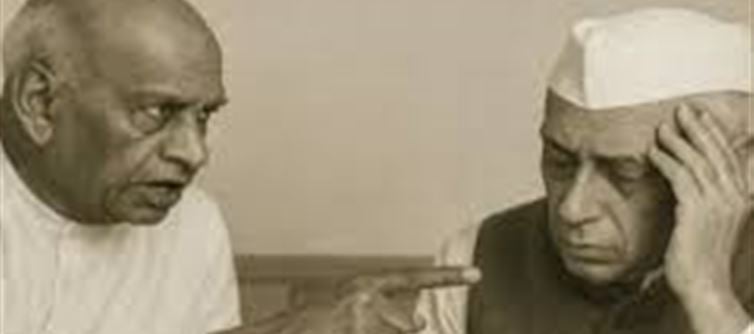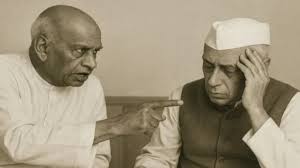
Long buried beneath layers of post-Independence political whitewash, the National Herald case has exploded back into the national spotlight. At its center: sonia gandhi and rahul Gandhi. The Enforcement Directorate (ED) accuses them of orchestrating a covert financial operation to divert assets worth ₹5,000 crore—a move the bharatiya janata party (BJP) describes as a “textbook example” of Congress’s legacy of corruption, entitlement, and dynastic abuse of power.
The Forgotten Warnings of Sardar Patel
But the roots of this controversy stretch far deeper—back to 1950. In a series of letters now archived in Sardar Patel’s Correspondence, India’s iron Man warned then-Prime minister Jawaharlal Nehru about the misuse of the National Herald for questionable fundraising. patel expressed alarm at donations tied to dubious business entities, warning Nehru of the moral and political risks of leveraging government influence for personal or party benefit.
A Tense Exchange Between Titans
On May 5, 1950, patel highlighted a ₹75,000 donation to the Herald from associates of Himalayan Airways—a company that had received a government contract despite objections from the indian Air Force. One donor, Akhani, was facing charges of bank fraud. patel also named Union minister Ahmed Kidwai for soliciting funds from controversial businessmen like J.P. Srivastava in Lucknow. Nehru’s response that same day was vague and non-committal, passing the responsibility to Feroze gandhi, his son-in-law and then-general Manager of the Herald.
Patel was not satisfied. In a follow-up letter on May 6, he pointed out that many of the donations were not charitable, but came from private companies with vested interests. “There is no element of charity in them,” he wrote. Nehru again deflected, claiming he hadn’t been involved in the paper’s finances for three years and suggesting the matter was merely about “loss and profit”—not ethics or accountability.
Young indian Ltd. and the gandhi Link
Fast forward to the present: the ED charges that sonia and rahul gandhi, through their control of Young indian Ltd., exploited financial and legal loopholes to take control of the now-defunct National Herald. Far from a case of routine restructuring, the agency alleges this was a calculated move to acquire prime real estate and assets for personal gain—under the guise of a corporate rescue mission.
Swamy’s Crusade and BJP’s Long Game
The man who first filed the case, Dr. Subramanian Swamy, has long alleged that the Gandhis engineered a “systematic conspiracy” to siphon off public assets. His efforts align with the BJP’s broader narrative: that the congress party has functioned more as a private family enterprise than a public institution, trading political clout for personal gain. The congress party, for its part, claims the investigation is politically motivated—a vendetta designed to discredit its leadership. However, the ED’s findings and Patel’s historical warnings have given fresh ammunition to critics who argue that congress has never truly shaken off its dynastic instincts.
A party on Trial—Legally and Morally
This isn’t just a court case anymore. It’s a moral referendum on the congress party’s legacy. By invoking Patel’s unheeded warnings, the bjp is framing the National Herald scandal as part of a larger story—a story about the erosion of institutional integrity, the sidelining of national interest for familial privilege, and a failure to honor the ethical standards envisioned by India’s founding leaders.




 click and follow Indiaherald WhatsApp channel
click and follow Indiaherald WhatsApp channel